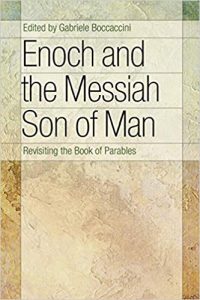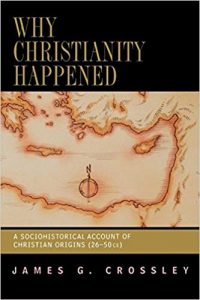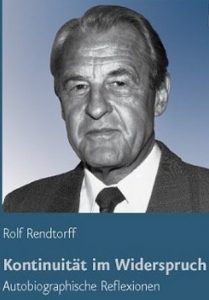Acaba de ser lançado: BOCCACCINI, G. (ed.) Enoch and the Messiah Son of Man: Revisiting the Book of Parables. Grand Rapids, MI: Eerdmans, 2007, 555 p. ISBN 978-0-8028-0377-1.
Esta publicação é resultado do terceiro seminário sobre a literatura hen óquica, The Enoch Seminar, que foi realizado em Camaldoli, Arezzo, Itália, de 6 a 10 de junho de 2005 e discutiu o tema The Parables of Enoch and the Messiah Son of Man. O volume – Henoc e o Messias Filho do Homem: Revisitando o Livro das Parábolas – traz 34 ensaios sobre as chamadas Parábolas de Henoc, ou 1Henoc 37-71.
óquica, The Enoch Seminar, que foi realizado em Camaldoli, Arezzo, Itália, de 6 a 10 de junho de 2005 e discutiu o tema The Parables of Enoch and the Messiah Son of Man. O volume – Henoc e o Messias Filho do Homem: Revisitando o Livro das Parábolas – traz 34 ensaios sobre as chamadas Parábolas de Henoc, ou 1Henoc 37-71.
1Henoc, também conhecido como Livro Etiópico de Henoc, é um pseudepígrafo apocalíptico de origem palestina, proveniente de um meio ambiente judaico e data do século II a.C.-I d.C. A língua original do escrito é o hebraico ou o aramaico, mas possuímos apenas versões em grego e etíope. O livro é na verdade um conjunto de escritos reunidos por autor desconhecido após o começo da era cristã e o centro literário que agrupa estas tradições é a figura de Henoc que aparece em Gn 5,1-32, onde se vê a seguinte genealogia de míticos patriarcas pré-diluvianos: Adão > Enós > Cainã > Malaleel > Jared > Henoc > Matusalém > Lamec > Noé (que gera Sem, Cam e Jafé).
Diz a apresentação da editora:
Distinguished in the field of Enochic studies, Gabriele Boccaccini led the way in June 2005 at the Third Enoch Seminar, entirely devoted to the Book of Parables in light of Second Temple Judaism and Christian origins. The unusual and compelling collection of essays found here reflects the spirit of sharing and dialogue that has made these seminars so popular and intriguing to scholars throughout the world. This third collection of essays from these historic meetings contains the observations and contemplations of thirty-four scholars, includes a helpful introduction by Boccaccini detailing the history of the movement, and ends with likely prospects for future research and an extensive bibliography compiled by associate editor Jason von Ehrenkrook for further study.
Os ensaios são assinados por George W. E. Nickelsburg, Michael A. Knibb, Loren T. Stuckenbruck, Benjamin G. Wright, James C. VanderKam, Eibert J. C. Tigchelaar, Andrei A. Orlov, William Adler, Jonathan Ben-Dov, Sabino Chialà, Helge S. Kvanvig, John J. Collins, Klaus Koch, Charles A. Gieschen, Gerbern S. Oegema, Gabriele Boccaccini, Matthias Henze, Leslie W. Walck, Adela Yarbro Collins, Ida Fröhlich, Kelley Coblentz Bautch, Pierluigi Piovanelli, Daniel Boyarin, Lester L. Grabbe, Pieter M. Venter, David W. Suter, Michael E. Stone, James H. Charlesworth, Darrell D. Hannah, Luca Arcari, Hanan Eshel, Daniel C. Olson, Paolo Sacchi, Jason von Ehrenkrook.
Para ler os livros de Henoc em espanhol: DIEZ MACHO, A. et al. Apócrifos del Antiguo Testamento IV. Madrid: Cristiandad, 1984, 340 p. ISBN 84-7057-353-5.


